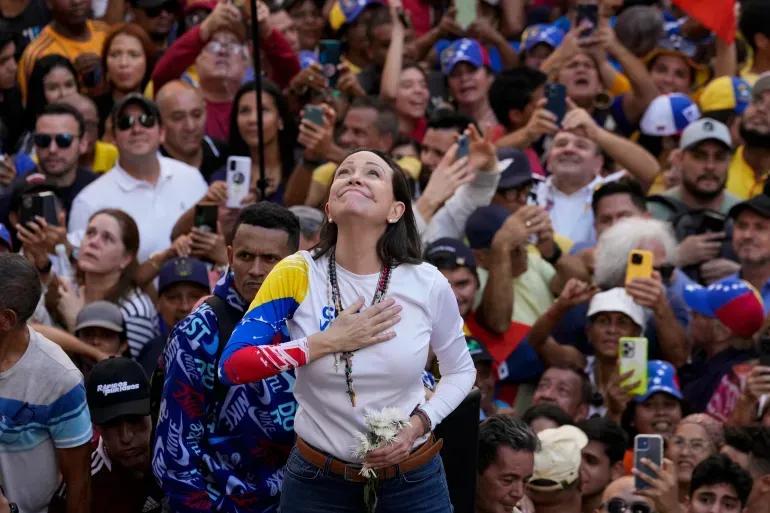On October 10, 2025, the world turned its gaze to Venezuela. The Norwegian Nobel Committee announced María Corina Machado as the winner of the Nobel Peace Prize, in recognition of her tireless fight for democracy, human rights, and freedom in her country. The news not only marked a personal milestone for a political figure who has faced persecution, disqualifications, and threats but also represented a symbol of hope for millions of Venezuelans who have been resisting authoritarianism for over two decades.
Machado, an industrial engineer by profession and a politician by vocation, gradually became one of the strongest voices against the regime of Nicolás Maduro. Her leadership, often questioned and silenced by censorship, has crossed borders and reignited the international debate on the democratic decline in Venezuela.
The Story of Corina
Since her early days in public life, María Corina Machado chose the path of civic confrontation against power. In 2002, she founded Súmate, a civil organization dedicated to electoral observation and the promotion of political rights, with the aim of ensuring the transparency of electoral processes. Her work led her to be judicially pursued, accused of treason against the homeland and expelled from the Venezuelan Parliament for denouncing, in international forums, the repression and violations of human rights in her country.

Over the years, her figure solidified as that of a defender of civil liberties amid a system that has restricted dissent. From the Vente Venezuela party, Machado has insisted that peaceful resistance and unity are the only possible tools to regain lost institutional integrity. Her discourse, profoundly liberal and rooted in republican values, has resonated particularly among the youth and sectors of civil society that refuse to accept the normalization of authoritarianism.
The Norwegian Nobel Committee precisely highlighted this commitment: “María Corina Machado has defended the fundamental rights of Venezuelan citizens with unwavering determination, seeking a peaceful transition to democracy and respect for human dignity.” The award also serves as a message to the world: the Venezuelan crisis is not an internal matter, but an open wound that calls upon the entire international community.
In her statements after learning the news, Machado asserted that the Nobel does not belong only to her but “to every Venezuelan who has not lost faith, who continues fighting, who continues dreaming of a free country.” That gesture, far from self-promotion, reinforces her role as a spokesperson for a collective cause, a cause that has transcended borders and today returns to global headlines.
Nobel Peace Prize 2025
The Nobel Peace Prize 2025 is not just recognition for a woman; it is the reflection of a sustained struggle for justice, freedom, and democracy. At a time when repression and exile seem to be the fate of those who dissent, Machado has remained steadfast, transforming adversity into a platform to bring the Venezuelan situation to the world's attention.
Her award reopens the conversation about the role of the international community in the face of authoritarian regimes and reaffirms the importance of voices that, from civil commitment, manage to keep hope alive. In a continent where democracies face profound challenges, the story of María Corina Machado serves as a reminder that peace is not built on silence, but on courage and truth.
And perhaps, in that echo now resonating in Oslo and Caracas, the Peace Prize may also transform into a new starting point for the moral and political reconstruction of Venezuela.


Comments